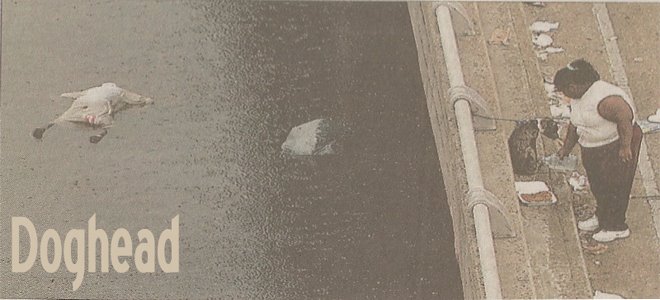
There is a rather large clue to The Good Man Jesus... on the back cover, which in huge letters reads THIS IS A STORY, Pullman, despite writing a book in the style of one of the four gospels, makes it quite plain from the start that it is not a heretical dig, but a work of fiction. I read the book in two afternoons - while appearing quite sizeable, the layout of the text is more akin to poetry than prose, and the font size is rather large. Normally I would be unhappy about shelling 15 quid for such a short novel, but the final product is very well made, from two font colours, to the ribbon bookmark. In retelling the story of Christ, Pullman takes the man Jesus Christ and makes him into twin brothers. Jesus: a rebellious figure who sees great injustice in the world and sees a chance to bring justice to the meek, and Christ: a quiet, contemplative figure who wants to save the whole of humanity through very different means. A shadowy figure follows Christ, instructing him to document the actions of Jesus, to tell his story in a way that would give the people truth to life, existence, and God. Ironically, Christ retells Jesus' tale in a way that is not entirely truthful, in essence adding legend and miracle to the actions of a good natured, but very normal man. This book begins as the story of Jesus Christ, but ends as an insight into the creation of the Christian church.
In interviews, Pullman has talked about his Christian upbringing, and of his open admiration for the stories within the bible. The Good Man Jesus and Scoundrel Christ is not only an indictment of organised religion, but is to all intents and purposes another authentic attempt at the retelling of the Bible story. It is worth noting that 12 gospels exist, some would say more, taking into account the recently found Gospel According to Judas Iscariot. It's quite clear why some of these gospels were ommitted, such as The Gospel According to Thomas, which talks of an infant Jesus transforming his schoolmates into goats and other such nonsense. The gospels themselves were originally compiled in the 2nd century, and were authored by anonymous writers, only given titles in hindsight. To what extent are these gospels truthful? Were the miracles performed as described, or was poetic retelling of historical moments later taken for physical fact? The Good Man Jesus and Scoundrel Christ doesn't necessarily have the answers you're looking for, but then maybe the New Testament doesn't have the answers either.
Here is an excerpt from close to the end of the book, where Jesus converses with God in the garden at Gethsemane, shortly before being arrested by the Romans. The conversation develops page after page, and is really quite a passionate monologue/conversation, which I think most agnostics and atheists (perhaps even religious) will find common ground.
'Have I been deluding myself as well as everyone else? What have I been doing, telling them that its going to come, that there are people alive now who will see the coming of God's Kingdom? I can see us waiting, and waiting, and waiting... Was my brother right when he talked of this great organisation, this church of his that was going to serve as the vehicle for the Kingdom on earth? No, he was wrong, he was wrong. My whole heart and mind and body revolted against that. They still do.'Because I can see just what would happen if that kind of thing came about. The devil would rub his hands with glee. As soon as men who believe they're doing God's will get hold of power, whether it's in a household or a village or in Jerusalem or in Rome itself, the devil enters into them. It isn't long before they start drawing up lists of punishments for all kinds of innocent activities, sentencing people to be flogged or stoned in the name of God for wearing this or eating that or believing the other. And the priviledged ones will build great palaces and temples to strut around in, and levy taxes on the poor to pay for their luxuries; and they'll start keeping the very scriptures secret, saying there are some truths too holy to be revealed to the ordinary people, so that only the priests' interpretation will be allowed, and they'll torture and kill anyone who wants to make the word of God clear and plain to all; and with every day that passes they'll become more and more fearful, because the more power they have the less they'll trust anyone, so they'll have spies and betrayals and denunciations and secret tribunals, and put the poor harmless heretics they flush out to horrible public deaths, to terrify the rest into obedience... (This goes on for quite a while)
'Lord, if I thought you were listening, I'd pray for this above all: that any church set up in your name should remain poor, and powerlessw, and modest. That it should wield no authority except that of love. That it should never cast anyone out. That it should own no property and make no laws. That it should not condemn, but only forgive. That it should be not like a palace with marble walls and polished floors, and guards standing at the door, but like a tree with its roots deep in the soil, that shelters every kind of bird and beast and gives blossom in the spring and shade in the hot sun and fruit in the season, and in time gives up its good sound wood for the carpenter; but that sheds many thousands of seeds so that new trees can grow in its place.'

No comments:
Post a Comment